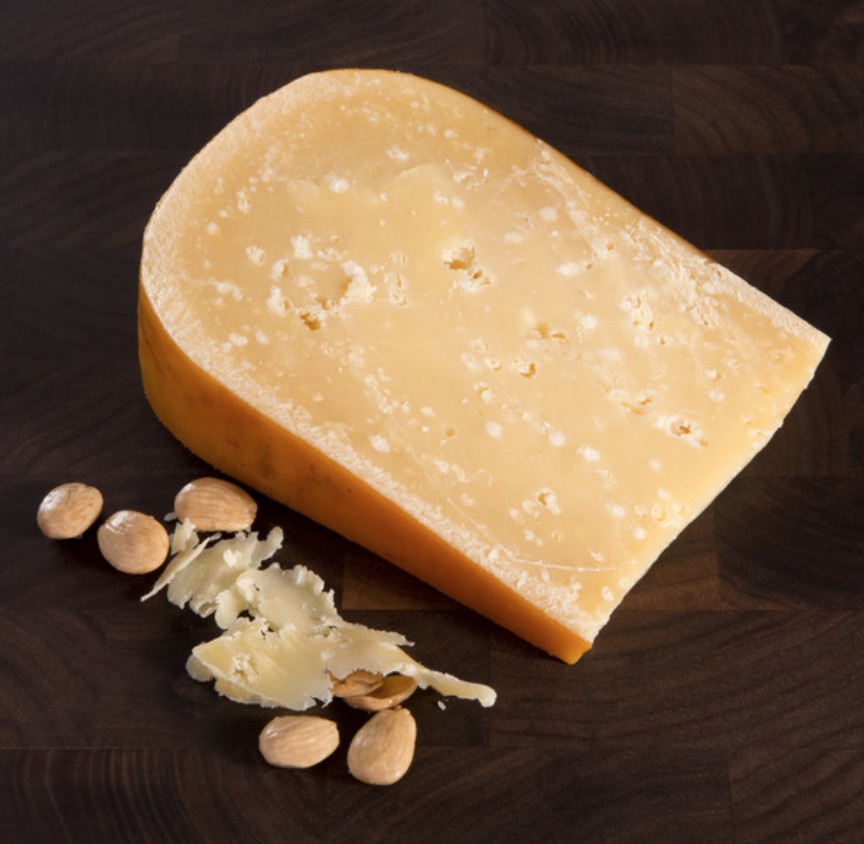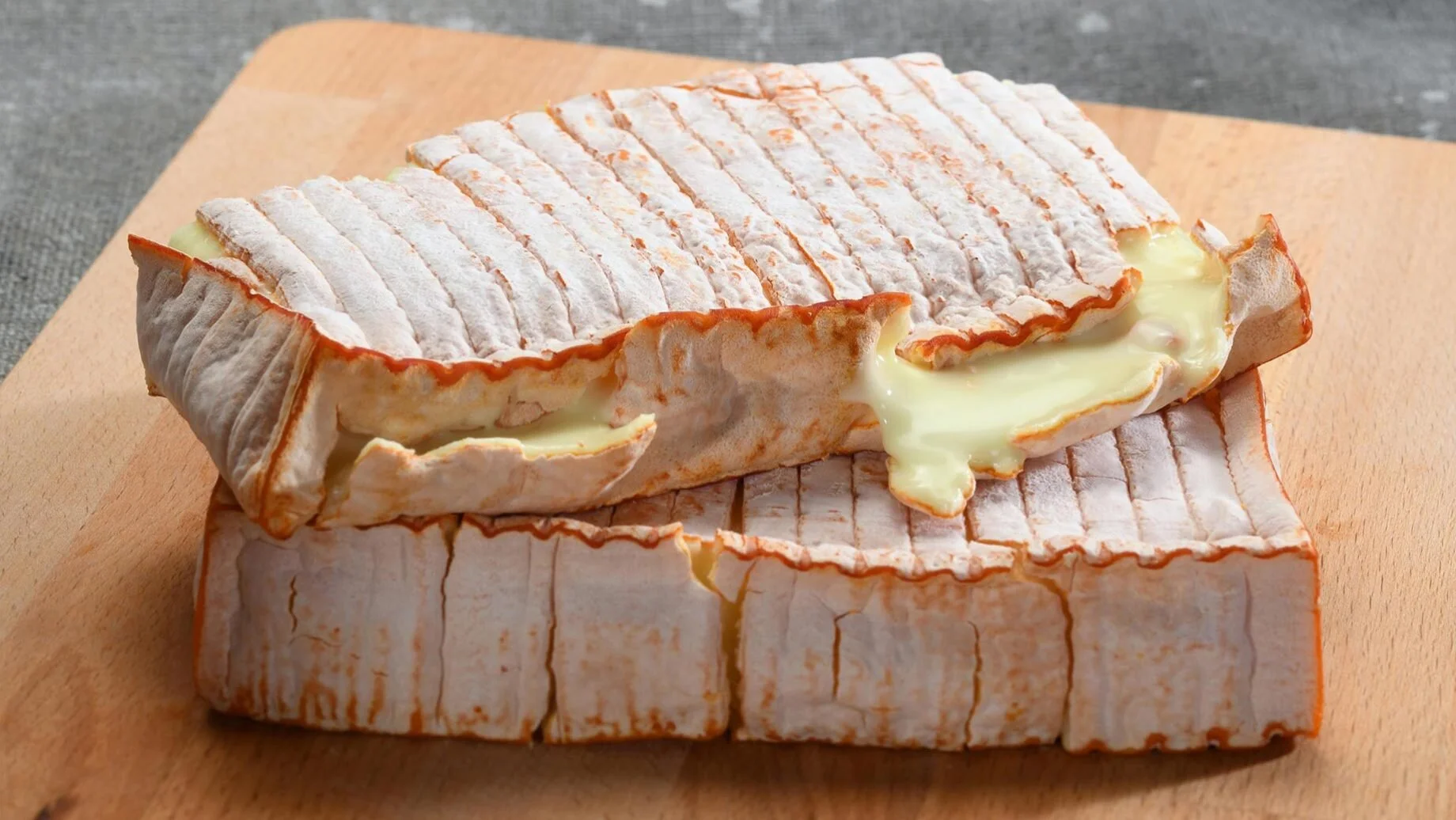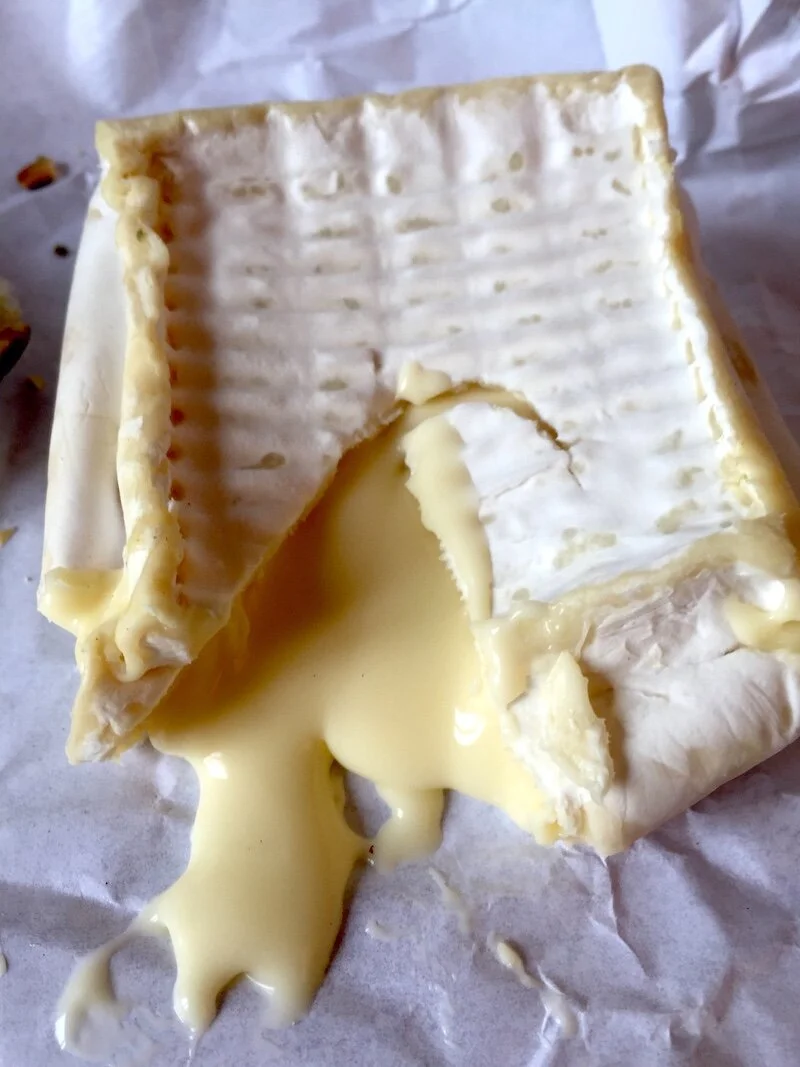Photo: murrayscheese.com
World Cheese Encyclopaedia - Each Sunday learn all about a new cheese.
This week Boerenkaas from The Netherlands.
Photo: formaggiokitchen.com
Country: The Netherlands 🇳🇱
Region: All of the Netherlands
Made from: Cow, Buffalo, Sheep or Goat’s milk
Pasteurised: Yes and No
Texture: Semi-hard
Taste: Full, strong, spicy, caramel, cashew
Certification: TSG - Traditional Speciality Guaranteed
Aging: 9 – 24 months
Boerenkaas (farmhouse cheese) is a Dutch cheese, most of which is handmade from raw milk from cattle, goats, sheep or buffalo. The cheese may contain also cumin or other seeds, herbs, and spices. Only Dutch cheese produced on a cheese farm in accordance with traditional and controlled production methods may be sold as farmhouse cheese. The name has been protected as a Traditional Speciality Guaranteed by the European Union since 2007.
Boer means 'farmer' and kaas means 'cheese'. The curds are made from raw milk and then rinsed of the acidic, watery whey before getting pressed into large, flat spherical wheels. This special treatment cuts out sharpness and allows butterscotch and cashew flavors to prevail over an 18-24 month aging period.
Boerenkaas TSG has a different form, flavour and texture depending on the type of milk used and the specific ingredients that can be added (cumin, other seeds, herbs and spices). The cheeses have a specific name depending on the composition. The Goudse, the Leidse and Edammer Boerenkaas TSG are made from cow's milk. The former has a cylindrical form with rounded trim, yellow-white rind, a firm to soft texture and regular holes. The second has nearly the same shape but with angular trim and red-brown colored rind. The last has a spherical or loaf form and yellow-white rind, both with a firm to hard consistency, small and uniform holes. The Boerenkaas TSG, made from goat's, buffalo's or sheep's milk, has in most cases a white rind, a firm to soft and supple texture, and regular holes.
At least half of the milk used for production must come from animal's bred on the farm where the cheese is processed. Other additions are permitted with milk coming from a maximum of two other dairies. The raw milk is coagulated through the addition of calf rennet at a temperature of about 30°C within 40 hours of milking. A culture of lactic acid bacteria is used to obtain the acidification. The mixture of milk and rennet is cut, mixed and left to partially drain, and then washed with hot water. At this point the mass is transferred into the appropriate drums where it is pressed. The casein label with the name of the cheese is applied during pressing, possibly accompanied by the type of milk used. With the pressing completed, the cheese is placed in brine and then seasoned. The ripening continues at the farm for at least 13 days at a temperature of at least 12°C, and continues in a special room on the farm or in the ripening stores of the whole saters, for a period ranging from a few weeks to over a year, until the cheese has acquired its characteristic flavour.
Photo: formaggiokitchen.com
History
The origins of Boerenkaas TSG lie within the Dutch dairy farm tradition, being the place chosen for the processing of milk up until the end of the 19th century, when the industrial production was launched in 1874. However, to maintain the typical flavour of the cheese, the artisanal transformation of raw milk is still practiced in the farms today. The law of 1982 on dairy products permits the transformation of cow's milk as well as sheep's, goat's and buffalo's milk and to produce cheese with a lower fat content.
How to enjoy it
Ideal eaten alone accompanied by a slice of good bread, or as a filling for sandwiches, it can also be used in the preparation of many recipes, from original desserts to cheese based dishes. It pairs well with fruity Malbec which is full-bodied with plenty of tannins and goes well with toothsome cheeses like Boerenkaas.
Source: Wikipedia, cheese.com, murrayscheese.com, formaggiokitchen.com, qualigeo.eu
Looking for a different cheese? Search the whole cheese encyclopaedia here.





























